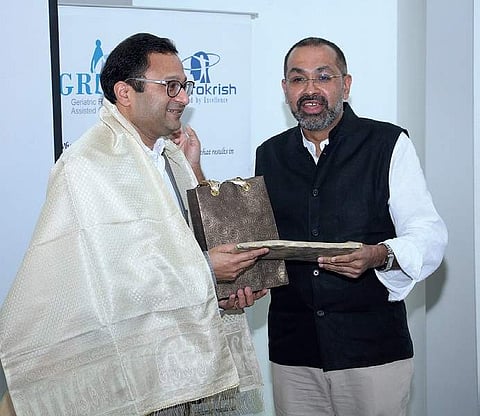

CHENNAI: End of life care is not something all of us think about. A special session on Dignitas – dying with dignity in an era of medical technology, organised by Neurokrish and TriMed. Dr Niruj Agarwal, consultant neuropsychiatrist, St George’s Hospital, London, was the special guest and he shared some case studies where his patients chose either assisted suicide or euthanasia.
Dr Srivatsa, TriMed, illustrated this through a case study on, how integrative medical therapy could be used to enhance the daily activities of those with chronic and terminal illness. “There’s always a debate when it comes to the question, ‘If I know I’m going to die, can I opt for it?’ As healthcare professionals, we have to ask our patients with terminal illness about the kind of treatment they would prefer. While many say they don’t want advanced treatments, more often than not, they retract to the statement,” says Dr ES Krishnamoorthy, founder, Neruokrish.
Dignitas is a facility in Switzerland where people with incurable physical disabilities, and those with terminal illnesses, opt for assisted suicide. “The difference is that for the former, the doctor induces medicines to end the life and in the latter, the decision is made on their behalf,” said Dr Agarwal.
Sharing the well known Aruba Shaunbhag case, Dr Agarwal said passive euthanasia was permitted by law in India. “But the hospital authorities want the consent of the court every time they come across such a case,” he added.
The speakers said many patients received intubation and ventilator support in an emergency, without an opportunity for discussion. But under the Mental Healthcare Bill 2016, every person, who is not a minor, has the right to declare what kind of treatment they would like, in case of any mental illness.
“You can also appoint a nominee to take decisions for you in case your mental health deteriorates. With proper mental capacity, one can take own decision,” added
Dr Krishnamoorthy. Many doctors, representatives and students from the medical field took part in the session.